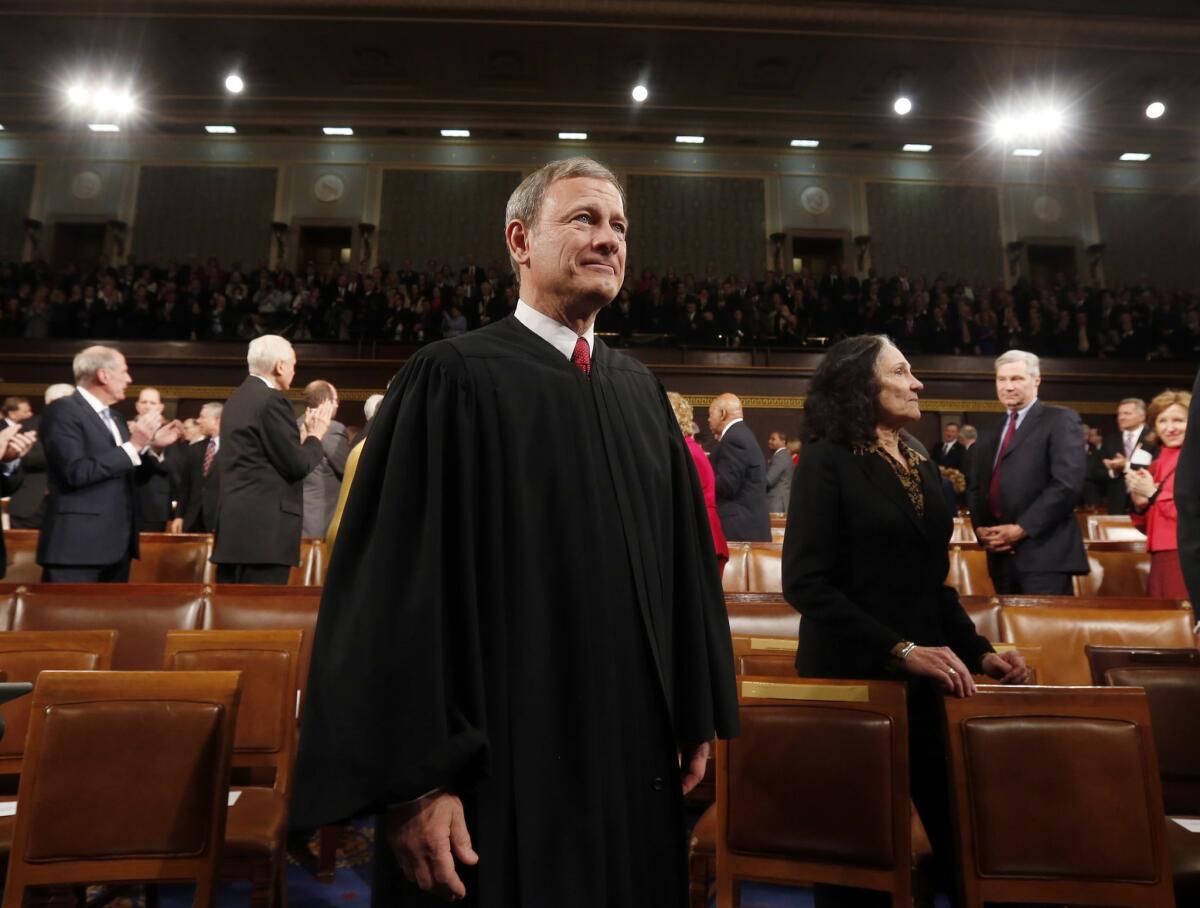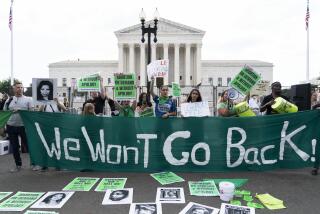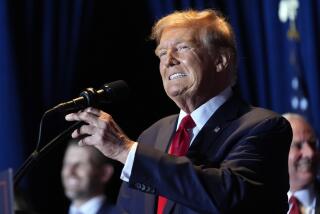Readers React: Obamacare decision: Lawyers doing what lawyers do

Chief Justice John G. Roberts Jr. wrote the Supreme Court’s 6-3 decision that lets the federal government keep providing health insurance subsidies even in states that haven’t set up insurance exchanges. Above, Roberts in 2014.
To the editor: I was startled to read the opinion piece by David B. Rivkin Jr. and Elizabeth Price Foley on King vs. Burwell. (“A terrible precedent,” Opinion, June 29) Clearly there are some good arguments pro and con, and a literalist interpretation of what appears to have been a typographical error is to be expected and is quite understandable from judges philosophically inclined in that direction. However, their assertion that “ascertaining a law’s purpose from evidence outside its text is virtually impossible” is bizarre in this case.
I have not personally reviewed the records of every congressional debate and the statements of each legislator, but I highly doubt that there was a single legislator who cast a vote who didn’t understand that the law was designed to give subsidies to people insured by all exchanges.
It is not the majority that was practicing judicial activism by accurately restating the intent of Congress; rather, it was the dissenters who were the activists, by attempting to create their own legislation contrary to the will and understanding of the legislative branch.
James Hagar, Glendale
..
To the editor: This Op-Ed seems to me to be just an attempt to placate the right-wingers who still read your paper.
Every poli-sci undergrad learns that legislation written by representatives is inherently flawed. What would be the purpose of the courts if not to sort through the legal minutiae and discern intent?
The court didn’t reach beyond to effect new social policy; it just interpreted the law. If that’s not its job, what’s left? Deciding presidential elections against the will of a state?
Jeffrey Olson, Seal Beach
..
To the editor: These conservative authors are desperately trying to change the meaning of the word “state” to facilitate changing the meaning of the law.
In the case of the United States of America, we are a “state” composed of 50 “united states.” Any argument that “state” means an individual state and not the whole of the United States is pure malarkey.
These lawyers are just doing what lawyers do: trying to win an argument by twisting the facts to suit their case.
Paul Moser III, Studio City
..
To the editor: I had to laugh at the claim it was “virtually impossible” for the court to understand the purpose of the law outside the four words of disputed text.
Gosh, maybe it should have asked the folks who wrote the law (if it wasn’t totally obvious from the other 900 pages) whether Congress wanted to subsidize insurance for as many Americans as possible. I am sure Nancy Pelosi would have been happy to explain.
Joanne Zirretta, Aliso Viejo
..
To the editor: I couldn’t help but laugh at the irony of two conservative lawyers complaining about the Supreme Court ruling when the case was created by a bunch of other conservative lawyers who claimed that one grammatical error should nullify the meaning and purpose of the act’s remaining hundreds of pages.
Rivkin and Foley assert that these legal parlor tricks were preferable to the “death spirals” that would likely occur when thousands lost their subsidies and could no longer afford health insurance.
Otherwise, people would become cynical.
Don’t worry, you and your kind have already proved beyond a shadow of a doubt that “law is politics.”
Lon Shapiro, Chatsworth
More to Read
A cure for the common opinion
Get thought-provoking perspectives with our weekly newsletter.
You may occasionally receive promotional content from the Los Angeles Times.






